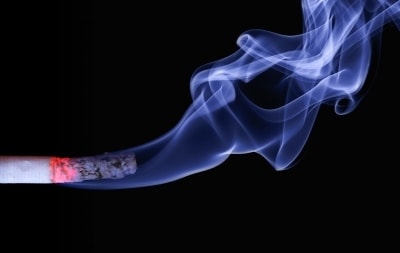New York, Nov 19 : Researchers using a model of airway tissue created from human stem cells have pinpointed how smoking cigarettes causes more severe infection by SARS-CoV-2, the virus that causes Covid-19, in the airways of the lungs.
The study, published in the journal Cell Stem Cell, will help researchers better understand Covid-19 risks for smokers and could inform the development of new therapeutic strategies to help reduce smokers’ chances of developing severe disease
To help understand how smoking affects SARS-CoV-2 infection on a cellular and molecular level recreated what happens when the airways of a current smoker are infected with SARS-CoV-2.
The team utilized a platform known as an air-liquid interface culture, which is grown from human airway stem cells and closely replicates how the airways behave and function in humans.
The airways, which carry air breathed in from the nose and mouth to the lungs, are the body’s first line of defence against airborne pathogens like viruses, bacteria and smoke.
“Our model replicates the upper part of the airways, which is the first place the virus hits,” said study author Brigitte Gomperts from the University of California, Los Angeles in the US.
“This is the part that produces mucus to trap viruses, bacteria and toxins and contains cells with finger-like projections that beat that mucus up and out of the body,” Gomperts added.
The air-liquid interface cultures used in the study were grown from airway stem cells taken from the lungs of five young, healthy, non-smoking tissue donors.
To replicate the effects of smoking, the researchers exposed these airway cultures to cigarette smoke for three minutes per day over four days.
“This type of model has been used to study lung diseases for over a decade and has been shown to mimic the changes in the airway that you would see in a person who currently smokes,” said Gomperts.
Next, the group infected the cultures exposed to cigarette smoke — along with identical cultures that had not been exposed — with live SARS-CoV-2 virus and the two groups were compared.
In the models exposed to smoke, the researchers saw between two and three times more infected cells.
Digging further, the researchers determined that smoking resulted in more severe SARS-CoV-2 infection, at least in part, by blocking the activity of immune system messenger proteins called interferons.
“If you think of the airways like the high walls that protect a castle, smoking cigarettes is like creating holes in these walls. Smoking reduces the natural defences and that allows the virus to set in,” the authors noted.
Disclaimer: This story is auto-generated from IANS service.

